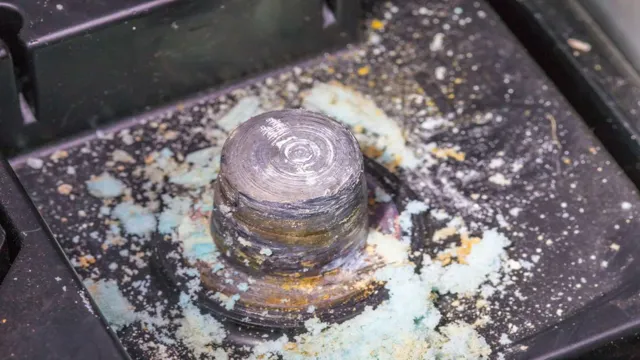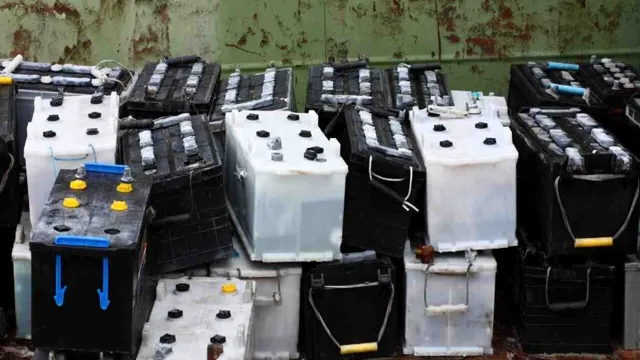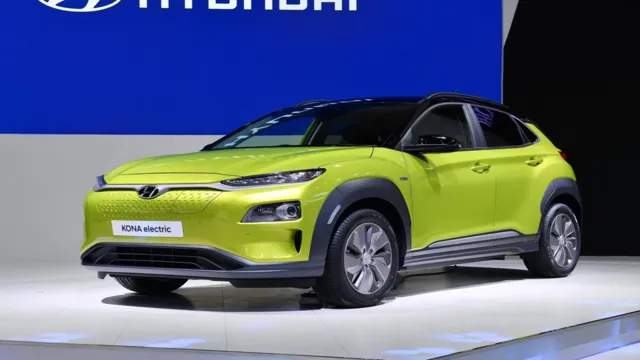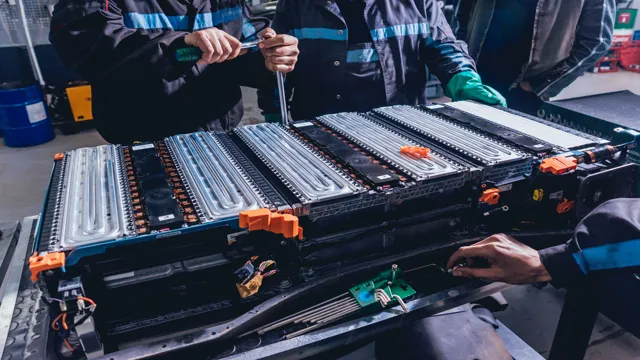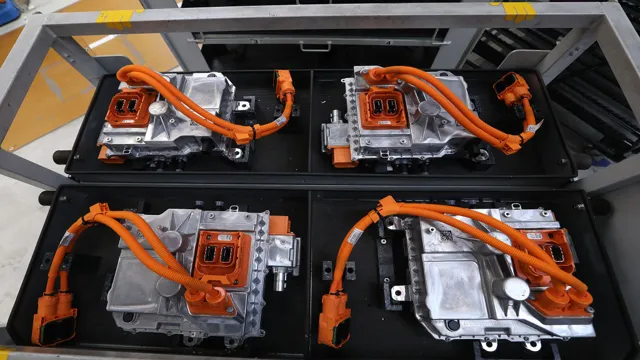Shocking Truth: Electric Car Battery Damage Can Harm the Environment!
Electric vehicles have quickly become the go-to solution for many people looking to reduce their carbon footprint and save money on fuel costs. However, despite their eco-friendliness, there are concerns surrounding the environmental impact of the batteries used in electric cars. As technology continues to advance, battery production and disposal have become increasingly complex issues, and it’s important to understand the potential damage that they can cause to the environment.
In this blog, we’ll explore the topic of electric car battery damage to the environment, looking at the key areas of concern and discussing what steps are being taken to mitigate any negative impact. Are electric cars truly as eco-friendly as we think they are? Let’s take a closer look.
Overview of Electric Car Batteries
Many people are concerned about the potential damage that electric car batteries can have on the environment. While it is true that these batteries do have some negative impact, such as requiring the mining of materials like lithium and cobalt, the overall effect is much less harmful than gasoline-powered cars. Electric cars emit significantly less greenhouse gases and pollutants than traditional vehicles, even when factoring in battery production and disposal.
Additionally, new battery technologies are being developed that use more sustainable materials and can last longer, making electric cars even more environmentally friendly. So while electric car batteries do have some drawbacks, they are still a major step forward in reducing the impact of transportation on the environment.
Battery production process: harmful substances used
Electric car batteries are becoming more commonplace as people look for environmentally-friendly options for their transportation. However, it is essential to know that batteries production comes with a dark side as they involve the use of harmful substances. Electric car batteries usually contain materials such as lithium, cobalt, and nickel that are extracted from the earth through intensive mining processes.
These elements are then used to make the batteries that power electric cars. The problem is that the mining process produces harmful byproducts such as carbon emissions, hazardous waste, and water pollution. These chemicals are not only harmful to the environment, but they also pose a significant risk to human health.
Therefore, it is crucial to be mindful of the battery production process while we shift towards cleaner energy.
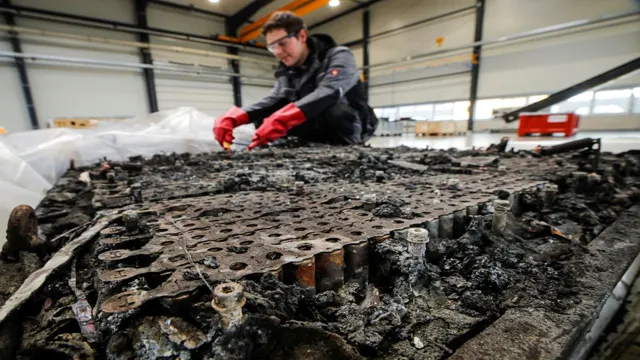
End-of-life battery disposal impact on environment
When it comes to electric cars, the battery is an integral component that powers the vehicle. These batteries are made up of various materials and chemicals such as nickel, cobalt, and lithium. However, like all batteries, they have a limited lifespan and will eventually need to be replaced.
This brings up the issue of end-of-life disposal and its impact on the environment. Improper disposal of batteries can lead to the leaching of toxic chemicals into the ground and water sources, which can have serious environmental consequences. Additionally, the mining and processing of materials used in these batteries can have negative impacts on local ecosystems and communities.
As more electric cars are introduced to the market, it is essential to find sustainable and responsible ways to dispose of their batteries to mitigate the potential harm to the environment.
The Positive Side of Electric Car Batteries
While it’s true that electric car batteries have been criticized for causing damage to the environment during their production and disposal, it’s worth noting that these concerns have been mostly overstated. In fact, the positive effects of electric cars on the environment far outweigh any potential negative impacts. For one, electric cars provide significant reductions in greenhouse gas emissions when compared to traditional gasoline-powered cars.
Additionally, advancements in battery technology will eventually lead to more sustainable battery production methods as well as better disposal and recycling options. With the ever-growing demand for electric vehicles, it’s clear that the future will be powered by renewable energy sources, and electric car batteries will be an important tool in realizing that future. While there are certainly challenges to be faced in the adoption of electric cars, their potential benefits are simply too great to be ignored.
Reduced carbon emissions compared to gas cars
Electric car batteries have a positive impact on the environment by reducing carbon emissions, a significant benefit compared to traditional gas-powered cars. Electric car batteries produce zero emissions, while traditional gas cars emit harmful gases into the atmosphere, contributing to global warming and air pollution. Not only do electric car batteries produce fewer emissions, but they also last longer and require less maintenance than gas car engines.
The use of electric car batteries leads to a better and more sustainable future, as they are designed to power vehicles that are safe, efficient, and eco-friendly. By opting for electric cars over gas cars, we can significantly reduce our carbon footprint and protect the environment for future generations. So, let’s take advantage of this positive side of electric car batteries and work towards a greener future.
Potential for renewable energy to power battery production
Renewable energy holds incredible potential for the production of electric car batteries. The production of batteries, particularly lithium-ion batteries, uses vast amounts of energy. Therefore, it makes sense to use renewable energy sources such as wind, solar, hydro, and geothermal to power the production of these batteries.
Doing so would significantly reduce the carbon footprint of electric vehicles, making them an even more environmentally friendly option. In addition to reducing emissions, renewable energy also has the potential to reduce the cost of production for batteries, helping manufacturers increase production and potentially lower the purchase price of electric cars. By utilizing sustainable and reliable energy sources and green technologies, the automotive industry can create positive ecological impacts and improve their products’ overall efficiency.
Battery recycling and reuse options
Electric car batteries are not just an innovative way of reducing carbon emissions from transportation, but also present a positive afterlife option. Once an electric car battery has outlasted its usefulness for powering a vehicle, it can still hold a substantial amount of energy. This residual power can provide secondary applications as energy storage, making it available for reuse in stationary energy storage systems.
Furthermore, recycling electric car batteries can minimize waste, while reusing its valuable components to create new batteries eliminates the need for new minerals. This reduces the need for resource extraction, which contributes to the environmental impact of battery production. Additionally, reusing and recycling batteries can help minimize the cost of materials and creates jobs in the recycling industry.
It also enables environmentally-conscious consumers to make responsible choices that positively influence sustainable development. The potential for rechargeable electric car batteries to be repurposed offers a bright future for sustainable transportation.
Considerations for Electric Car Owners
As electric car owners, it’s important to consider the impact of our vehicle’s battery on the environment. While electric cars are often touted as cleaner and more efficient than their gasoline counterparts, the production and disposal of lithium-ion batteries have their own set of environmental challenges. The mining of lithium, a key component of these batteries, can require significant amounts of water and energy, and can result in soil and water pollution.
Meanwhile, the disposal of old batteries can lead to hazardous waste and further pollution. However, it’s worth noting that many efforts are being made to improve the sustainability of electric car batteries, with companies exploring alternative materials and recycling methods. As electric car owners, we can also do our part by properly disposing of our old batteries and supporting initiatives that promote sustainable battery production and disposal.
By being mindful of the environmental impact of our electric cars, we can help ensure a cleaner, greener future.
Proper disposal and recycling of used batteries
As an electric car owner, it’s important to understand the proper disposal and recycling of used batteries. These batteries are large and contain various chemicals that can be harmful to the environment if not handled correctly. It’s important to work with a reputable and licensed recycling company that knows how to safely disassemble the battery and extract any reusable materials.
Additionally, some car manufacturers have their own recycling programs that you can participate in when it’s time to replace your battery. By properly disposing of your used battery, you’re not only doing your part to protect the environment but also helping to reduce the demand for new raw materials. Do your research and find a recycling program that aligns with your values and commitment to sustainable living.
Together, we can make a difference for our planet. So, the bottom line is that responsibly recycling electric car batteries is essential for the environment and our collective future.
Factors to consider when choosing an electric car model
Choosing an electric car model can be overwhelming, with so many options available. The factors to consider when making this decision include your daily range requirements, charging infrastructure in your area, and driving habits. Ensuring that the electric car you choose meets your range requirements is essential to prevent any issues with running out of charge mid-trip.
Moreover, assessing the availability and proximity of charging stations in your area will help you plan better and ensure you’re never stranded with a depleted battery. Lastly, think about your driving habits. If you’re a heavy-footed driver, opt for a model with a larger battery capacity to avoid frequent stops to recharge.
Investing in an electric car not only aligns with your commitment to the environment but also saves you on fuel costs in the long run. So be sure to consider these factors to find the perfect electric car that meets all your lifestyle needs.
Wrapping Up: Pros and Cons of Electric Car Batteries
While electric car batteries do offer a more eco-friendly alternative to traditional combustion engines, they are not without their drawbacks. One of the primary concerns is the damage that the production and disposal of batteries can have on the environment. The mining of materials for the batteries, such as lithium and cobalt, can be harmful to local communities and ecosystems.
Additionally, the disposal of these batteries can lead to toxic chemicals leaching into the soil and water. Despite these concerns, there are steps being taken to improve the sustainability of electric car batteries, such as using recycled materials and implementing responsible waste management practices. It’s important for consumers to be aware of all aspects of owning an electric car and to make environmentally-conscious choices in all aspects of their daily lives.
Conclusion
In conclusion, while it’s true that the production and disposal of electric car batteries can potentially harm the environment, we shouldn’t let misinformation and fear-mongering overshadow the benefits of transitioning to cleaner energy. Just like any technology, there are trade-offs and challenges that must be addressed. However, with continued research and innovation, we can reduce the negative impacts and pave the way towards a more sustainable future.
So don’t let the naysayers rain on our EV parade – let’s power on towards a greener tomorrow!”
FAQs
How do electric car batteries impact the environment?
While electric cars reduce emissions compared to traditional gas-powered cars, they do have an impact on the environment through the manufacturing and disposal of their batteries. The production of electric car batteries requires significant resources and energy, and the disposal of these batteries can lead to environmental contamination if not done properly.
Can electric car batteries be recycled?
Yes, most electric car batteries can be recycled. The materials inside the batteries, such as lithium, cobalt, and nickel, can be extracted and reused to make new batteries or other products.
Are electric car batteries more durable than traditional car batteries?
Electric car batteries are typically designed to last longer than traditional car batteries, with warranties ranging from 8 to 10 years or more. However, extreme temperatures and frequent charging can still lead to degradation and eventually replacement.
How can I dispose of my electric car battery responsibly?
It is important to properly dispose of your electric car battery to avoid environmental contamination. Many car manufacturers have programs in place to recycle their batteries, and you can also check with your local government or recycling center for options. Do not attempt to dispose of the battery in regular trash or landfill.
